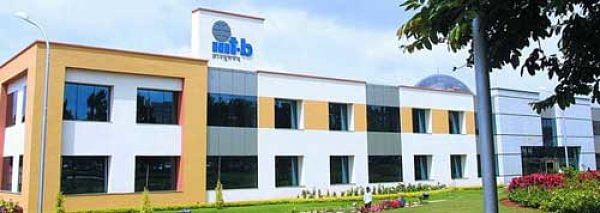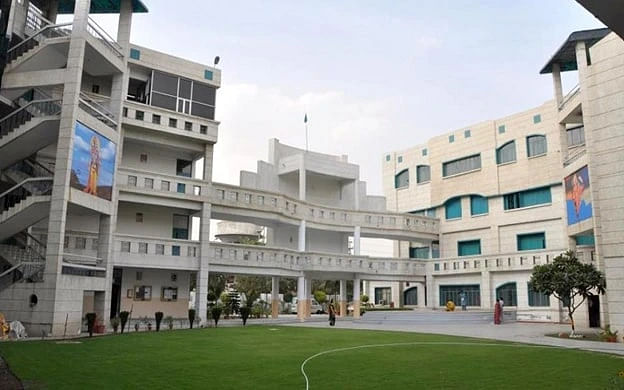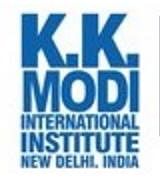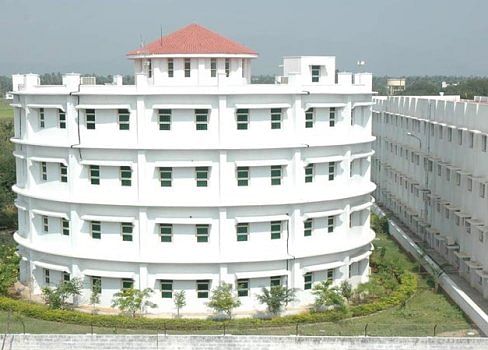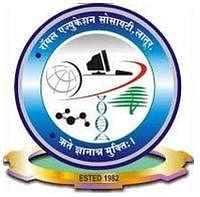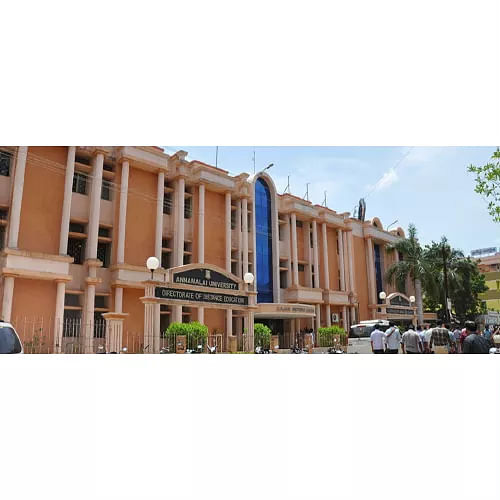M.Sc Software Engineering: Course Details, Eligibility, Admission, Fees

M.Sc Software Engineering is a two-year postgraduate program that deals with computer science and systematic engineering approach to software development. M.Sc. Software Engineering jobs after post-graduation include Software Manager, Java Professional, Software Developer, and Software Engineer, Applications Engineer, Software Testing Engineer, etc.
Table of Contents
- About M.Sc Software Engineering
- Eligibility Criteria for M.Sc Software Engineering
- Who Should Pursue an M.Sc Software Engineering Course?
- When To Do M.Sc Software Engineering Course?
- How To Get Admission for M.Sc Software Engineering?
- Types of M.Sc Software Engineering Courses
- Popular Entrance Exams for M.Sc Software Engineering
- Top M.Sc Software Engineering Colleges in India
- Study M.Sc Software Engineering Abroad
- Fee Structure for M.Sc Software Engineering
- Syllabus and Subjects for M.Sc Software Engineering
- Why Choose M.Sc Software Engineering Course?
- M.Sc Software Engineering Course Comparison
- Preparation Tips for M.Sc Software Engineering Course
- Scope Of M.Sc Software Engineering For Higher Education
- Salary of an M.Sc Software Engineering Post Graduate
- Career Options After M.Sc Software Engineering Post Graduation
- Skills That Make You The Best M.Sc Software Engineering Post Graduate
M.Sc Software Engineering Course Details
| Degree | Masters |
| Full Form | Master of Science in Software Engineering |
| Duration | 2 Years |
| Age | No age limit |
| Subjects Required | Bachelor’s in Software Development or relevant field from a UGC recognized university. |
| Minimum Percentage | 50% |
| Average Fees | ₹1 - 2 LPA |
| Average Salary | INR 6 - 14 LPA |
| Employment Roles | Software Manager, Java Professional, Software Developer, and Software Engineer, Applications Engineer, Software Testing Engineer, etc. |
About M.Sc Software Engineering
The M.Sc Software Engineering course is one of the most popular fields of engineering. This is an M.Sc course that covers the subjects in the field of Software Engineering. The M.Sc Software Engineering course stands for Master of Science Software Engineering. The M.Sc Software Engineering duration is of two years.
A Master of Science in Software Engineering is a postgraduate academic degree (Master’s Degree) awarded for completing a program of study in the field of software development for computers in information technology.
Eligibility Criteria for M.Sc Software Engineering
For M.Sc Software Engineering admission, the M.Sc Software Engineering eligibility includes students having to successfully pass a bachelor's degree from a recognized education board. In addition, many colleges and universities conduct entrance exams for students to be eligible for the course. There is no age limit to applying for this course.
Who Should Pursue an M.Sc Software Engineering Course?
The M.Sc Software Engineering course is for those aspirants that want to set up a career in Software Engineering. Depending on the specialization of the M.Sc In The Software Engineering course, aspirants can set up their careers in the domain of their preferences, such as Reliability Management, Information Technology, and Project Management, Engineering Chemistry, Software Quality Engineering, Network Programming, and Problem Solving using C, to name a few.
When To Do M.Sc Software Engineering Course?
Typically, it makes sense for M.Sc Software Engineering aspirants apply for their respective courses immediately after completing their bachelors. However, students from only the science stream can apply for an M.Sc Software Engineering course.
How To Get Admission for M.Sc Software Engineering?
M.Sc Software Engineering admission is possible through both entrance examination and merit-based selection. Many universities offer direct and entrance exam-based admission to the M.Sc Software Engineering course.
Candidates applying for the M.Sc Software Engineering degrees should have their results from the respective entrance exam boards required by the selected/opted universities. Though the admission process varies from college to college, below are the steps that one should generally go through to get admission.
How to Apply?
The M.Sc Software Engineering degree course applications are available either online from the University website or offline by visiting the university's admissions office. In addition, some colleges may conduct interviews before admissions to check if students have good communication skills.
Candidates applying for the Master of Science in Software Engineering program should have all the necessary documents before the entrance test, such as bachelors results and ID verification.
Selection Process
The selection process for the courses under M.Sc Software Engineering in India is usually the same irrespective of the specialization. Generally, once the application for the course is received, colleges decide on the final selection of the candidates based on the marks obtained by them in the entrance exams.
Types of M.Sc Software Engineering Courses
Aspirants can pursue the M.Sc Software Engineering course in the full-time, distance or part-time mode. Below are the types of M.Sc Software Engineering courses in detail:
Full-Time M.Sc Software Engineering
The full-time M.Sc Software Engineering program is typically for 2 years, where students will have to attend classes in person, submit assignments, and write their exams on-campus. The advantage of a full-time M.Sc Software Engineering courses that students will gain a lot more exposure, experience and knowledge through direct interaction with their peers and faculty.
Part-Time M.Sc Software Engineering
The part-time M.Sc Software Engineering course is designed for students who cannot attend regular classes. Part-time courses either entail weekend or night classes or online classes, depending on the type of course. The advantage of the part-time M.Sc Software Engineering course is that students can pursue this course while simultaneously being engaged in employment, research, etc.
Distance M.Sc Software Engineering
Many universities and colleges in India offer the Distance M.Sc Software Engineering course. The course is designed keeping the Distance Education methodology in mind. This course is designed for students who cannot afford to attend classes on-campus or those engaged in some form of employment and cannot take time out to pursue a full-time course.
Popular Entrance Exams for M.Sc Software Engineering
Entrance exams are a common and popular means for some colleges to have a screening to decide which student must be admitted to the course. Many popular colleges around the country have made a name for themselves by conducting internationally acclaimed research projects.
These colleges often conduct entrance exams, as the demand to enter these colleges is higher than the number of seats available. Listed below are some of the popular exams:
A Quick Glance at the M.Sc Software Engineering Entrance Exams
Students can access the M.Sc Software Engineering course details by going to the college's official website to which they are interested in applying. The specialization plays a vital role in the college's approach to the entrance exam. Below listed are some of the general guidelines of the M.Sc Software Engineering entrance examinations:
- The exam pattern includes English, Logical Reasoning, Analytical Thinking, and subject-specific questions according to the specialization.
- The papers are objective and MCQ-based.
- The syllabus, mode of examination, and question pattern may change according to a university/conducting body.
Top M.Sc Software Engineering Colleges in India
India is home to some of the M.Sc Software Engineering colleges in the world. Aspirants have many options to choose from in terms of the best M.Sc Software Engineering course as per their preferences. Below is the list of the best M.Sc Software Engineering Colleges in the country:
| Sl.No | Name of the College |
| 1 | Anna University, Madurai |
| 2 | Noorul Islam University, Kanyakumari |
| 3 | VIT, Vellore |
| 4 | KEC, Erode |
| 5 | ARCET, Tirunelveli |
| 6 | St. Xavier’s College, Mumbai |
| 7 | BITS, Pilani |
| 8 | PSGCT, Coimbatore |
Top M.Sc Software Engineering Colleges in New Delhi
India’s capital city is home to some of the best institutions for M.Sc Software Engineering in India. Check the table below for the top M.Sc Software Engineering colleges in New Delhi:
| Sl.No | Institution |
| 1 | DTU |
| 2 | JMI |
| 3 | IIT Delhi |
| 4 | JNU |
| 5 | NIT Delhi |
Top M.Sc Software Engineering Colleges in Pune
Pune also has some of the best institutions for M.Sc Software Engineering in India. Check the table below for the top M.Sc Software Engineering colleges in Mumbai:
| Sl.No | Institution |
| 1 | COEP |
| 2 | BVUCOE |
| 3 | VIT |
| 4 | SIT |
| 5 | AIT |
Top M.Sc Software Engineering Colleges in Chennai
Tamil Nadu’s capital city is home to some of the premier institutions for M.Sc Software Engineering in India. Check the table below for the best M.Sc Software Engineering colleges in Chennai:
| Sl.No | Institution |
| 1 | SKCET |
| 2 | Rajalakshmi Engineering College |
| 3 | VIT University |
| 4 | SSN College of Engineering |
| 5 | Anna University |
Top M.Sc Software Engineering Colleges in Bangalore
The capital city of Karnataka is renowned around the country for colleges offering top M.Sc Software Engineering programmes. Check the table below for the best M.Sc Software Engineering colleges in India:
| Sl.No | Institution |
| 1 | MSRIT |
| 2 | New Horizon College of Education |
| 3 | University Visvesvaraya College of Engineering |
| 4 | CIT |
| 5 | Aimfill International |
Top M.Sc Software Engineering Colleges in Kolkata
West Bengal’s capital city, Kolkata, has some of the best colleges for M.Sc Software Engineering courses in India. Check the table below for the best M.Sc Software Engineering colleges in Kolkata:
| Sl.No | Institution |
| 1 | Jadavpur University |
| 2 | GNIT |
| 3 | Adamas University |
| 4 | UEM |
| 5 | IIEST |
Top M.Sc Software Engineering Colleges in Hyderabad
The Telangana state capital has some premier institutions in the country for M.Sc Software Engineering courses in India. Check the table below for the top M.Sc Software Engineering colleges in Hyderabad:
| Sl.No | Institution |
| 1 | BITS |
| 2 | CBIT |
| 3 | JNTUH College of Engineering |
| 4 | University College of Engineering |
| 5 | University of Hyderabad |
Top M.Sc Software Engineering Government Colleges
There are several top Government Colleges offering quality M.Sc Software Engineering programmes across the country. Check the table below for the top M.Sc Software Engineering government colleges in India:
| Sl.No | Institution |
| 1 | IIT Delhi |
| 2 | DTU Delhi |
| 3 | NIT Delhi |
| 4 | BVUCOE |
| 5 | Maharaja Agrasen Institute of Technology |
Top M.Sc Software Engineering Private Colleges
India has seen significant growth in the number of quality M.Sc Software Engineering private colleges that offer some of the best programmes in the country. Check the table below for the top M.Sc Software Engineering private colleges in India:
| Sl.No | Institution |
| 1 | SRM IST, Chennai |
| 2 | IIT Guwahati |
| 3 | SOA, Bhubaneswar |
| 4 | MIT, Manipal |
| 5 | BIT, Ranchi |
Study M.Sc Software Engineering Abroad
Students can opt to study an M.Sc Software Engineering course abroad if they can afford it. The M.Sc Software Engineering course abroad is for 2 years. The benefits of studying an M.Sc Software Engineering courses abroad are access to some of the best resources, facilities, and faculties, apart from worldwide exposure in terms of subject matter and other cultures.
In addition, M.Sc Software Engineering is one of the best courses to study abroad because of its diversity. Below are some of the top M.Sc Software Engineering colleges abroad and the relevant fees structure:
Top M.Sc Software Engineering Colleges Abroad
The table below contains the list of some of the best colleges abroad for M.Sc Software Engineering:
| Sl.No | Institution | Fees (USD) |
| 1 | University of Oxford | 43220 |
| 2 | Harvard University | 46690 |
| 3 | University of Cambridge | 45670 |
| 4 | University of Toronto | 41722 |
| 5 | Stanford University | 47501 |
| 6 | McGill University | 54650 |
| 7 | New York University | 52538 |
| 8 | University of California | 48160 |
| 9 | University of Calgary | 53346 |
| 10 | Columbia University | 59105 |
Top M.Sc Software Engineering Colleges in the USA
The USA is home to some of the best universities and colleges offering top-notch M.Sc Software Engineering programmes in the world. The table below contains the list of top M.Sc Software Engineering colleges in the USA:
| Sl.No | Institution |
| 1 | Massachusetts Institute of Technology |
| 2 | University of California, Berkeley |
| 3 | Stanford University |
| 4 | University of Illinois |
| 5 | Cornell University |
Top M.Sc Software Engineering Colleges in the UK
The UK has institutions that date back to the 13th century. This makes the UK one of the best destinations for pursuing an M.Sc Software Engineering. The table below shows the top colleges in the UK for M.Sc Software Engineering:
| Sl.No | Institution |
| 1 | Cardiff University |
| 2 | Cranfield University |
| 3 | Brunel University London |
| 4 | University College London |
| 5 | University of West London |
Top M.Sc Software Engineering Colleges in Canada
Known as the ‘Great White North, Canada is one of the most sought-after destinations for M.Sc Software Engineering programmes in the world:
| Sl.No | Institution |
| 1 | McMaster University |
| 2 | Concordia University |
| 3 | University of Regina |
| 4 | University of Waterloo |
| 5 | Conestoga College |
Top M.Sc Software Engineering Colleges in Australia
Known as the ‘Land Down Under, Australia has emerged as one of the top destinations for higher studies for many students. The list of top M.Sc Software Engineering colleges in Australia are as follows:
| Sl.No | Institution |
| 1 | University of Melbourne |
| 2 | Australian National University |
| 3 | University of New South Wales |
| 4 | University of Sydney |
| 5 | Monash University |
Fee Structure for M.Sc Software Engineering
The M.Sc Software Engineering course fee is not fixed and depends on many factors. Some of the factors which affect the M.Sc Software Engineering fees include location, faculty, demand, infrastructure, and the facilities available to the students. The average M.Sc Software Engineering course fee in India is around INR 10,000 - 1.5 LPA.
| Sl.No. | Name of the College | Total Fees (INR) |
| 1. | DTU, New Delhi | 1.66 LPA |
| 2. | BVDU, Pune | 1.2 LPA |
| 3. | School of Engineering and Technology, Jain University, Bangalore | 1.25 LPA |
| 4. | KL University, Guntur | 2.5 LPA |
Syllabus and Subjects for M.Sc Software Engineering
The course syllabus is included in the curriculum of some of the most popular M.Sc Software Engineering courses are tabulated below. The crux of the syllabus is maintained throughout most colleges across the nation, although minor deviations may be observed for a few colleges. Listed below are some subjects that the students get a chance to study:
- Reliability Management
- Software Quality Engineering
- Information Technology and Project Management
- Personal Development and Research Management
- Software Engineering Support Environments
Read More: M.Sc Software Engineering Syllabus and Subjects
Why Choose M.Sc Software Engineering Course?
When students decide to pursue the M.Sc Software Engineering qualification, they should research M.Sc Software Engineering course details to ensure that they know the course they are enrolled in. Some of the common queries that students encounter are, "What is M.Sc Software Engineering" and "Why M.Sc Software Engineering?". To understand the answer to these questions, we can simplify it by breaking it down into the following three short questions:
What is M.Sc Software Engineering All About?
An M.Sc Software Engineering course is a postgraduate computer science degree awarded to students, usually in a branch of Computer Science. It is one of the oldest and most popular programs globally.
M.Sc Software Engineering degree is a mix of many subjects that allows candidates to adapt to the changing demands of the employer and meet their needs. The M.Sc Software Engineering course enhances the candidates’ communication, research, and analytical skills.
What Does an M.Sc Software Engineering Graduate Do?
Students can select the subjects of their choice depending on their interest in job prospects available in the specific field. Since graduates with a Bachelor of Technology degree possess skills in various subjects, there are career opportunities available in multiple fields for them.
In addition, there are many responsibilities that graduates of this role have to undertake, which makes the role very dynamic and diverse.
Software Engineer: One of the popular roles undertaken by graduates of the M.Sc Software Engineering course is Software Engineer. Since students gain a deeper understanding of a specific subject when studying M.Sc Software Engineering, it helps them pursue Software Engineer as a career.
Reasons Why M.Sc Software Engineering Can Fetch You a Rewarding Career?
M.Sc Software Engineering course is a very reflective and exciting stream of education. Students can gauge the intrinsic worth of an M.Sc Software Engineering course because it offers more avenues of employment opportunities than any other stream. Thus, the M.Sc Software Engineering job scope is forever widening and appealing.
Diversity in Job roles: There is a diverse range of job roles available for the postgraduates of this course. Since the specializations available to the students are very flexible, it enables the students to pursue a wide range of roles in their careers.
Read More: M.Sc Software Engineering Jobs and Scope
M.Sc Software Engineering Course Comparison
M.Sc Software Engineering stands for Master of Science in Software Engineering and is typically catered to students interested in and inclined towards software engineering. Below is a comparison of the M.Sc Software Engineering course with other courses:
M.Sc Software Engineering vs MSc Computer Science
The table below showcases the differences between M.Sc Software Engineering and MSc Computer Science:
| Course | M.Sc Software Engineering | M.Sc Computer Science |
| Full Form | Master of Science in Software Engineering | Master of Science in Computer Science |
| Stream | Engineering and Technology | Engineering and Technology |
| Course Duration | 2 years | 2 years |
| Eligibility | Science Graduate | Science Graduate |
| Entrance Exams | GATE, BITSAT, BHU UET, PUBDET, APU UG NET, UPSEE, TS EAMCET | GATE, BITSAT, BHU UET, PUBDET, APU UG NET, UPSEE, TS EAMCET |
| Top Colleges | The Anna University of Technology, Noorul Islam Centre for Higher Education-Noorul Islam University, VIT School of Information Technology & Engineering, Kongu Engineering College. | Loyola College, Chennai, Christ University, Banglore, St Xavier's College, Kolkata, etc |
| Fees | INR 5-12 LPA | INR 5-12 LPA |
Read More: MSc Computer Science
Preparation Tips for M.Sc Software Engineering Course
There are many tips that students must note when deciding to pursue an M.Sc Software Engineering degree. Some important preparation tips are listed below to ensure that the students crack the course and pass the exams without any hurdles.
Improve Vocabulary: Improving vocabulary is necessary as the M.Sc Software Engineering course deals with many writing and reading activities. So having excellent communication and writing skills is a plus point for the student studying the M.Sc Software Engineering course.
Read and Practice More: Being up to date with the syllabus every day is very important. Practising and reading more will help the student be thorough with the syllabus and do well in the exams.
Have Intrinsic Knowledge and Interest in Subject: Having intrinsic knowledge about the subject and having the same interest will keep the student motivated to learn more than what's in the syllabus.
Revise Methodically: Revising from time to time can be a key to scoring well in the final exam. Keep revising regularly and understand the subject properly. Revision is the key to scoring good marks.
Scope Of M.Sc Software Engineering For Higher Education
Students can pursue many specializations under M.Sc Software Engineering. There are also many higher study options available for graduate students after a M.Sc Software Engineering degree, which can help them better understand the subject.
Also, gaining more education can help students pursue a career in research if they are interested in it. Listed below are some of the popular higher education options available for students:
Salary of an M.Sc Software Engineering Post Graduate
The M.Sc Software Engineering salaries for the postgraduates can differ according to the specialization that aspirants decide to pursue. Other factors that can affect M.Sc Software Engineering salaries in India include experience, geography, and the industry they are working in.
Graduates can increase their salary by doing internships and work placements as it would add to their experiences. The average M.Sc Software Engineering jobs salary for postgraduates is around INR 4 - 12 LPA [Source: PayScale].
Read More: M.Sc Software Engineering Salary
Career Options After M.Sc Software Engineering Post Graduation
There are plenty of M.Sc Software Engineering jobs are available for students looking for a career in Computer Science. The job roles will differ based on the specialization that one has opted for. M.Sc Software Engineering postgraduates have abundant job opportunities with good salary packages that include the following fields:
- Software Manager
- Java Professional
- Software Developer
- Software Engineer
- Applications Engineer
- Software Testing Engineer, etc.
Skills That Make You The Best M.Sc Software Engineering Post Graduate
There are many complex and soft skills that M.Sc Software Engineering postgraduates need to possess to succeed in their careers. These are not necessarily skills that students can get in a classroom setting. Instead, these are skills that are learned through experience. Therefore, students should always put in the effort to go out of their comfort zone and gain as much experience as possible. Some of these skills include:
- Quantitative Analysis Skills
- Research Skills
- Analytical Skills
- The Ability to Work Under Pressure
- Interpersonal Skills
- Practical Skills
